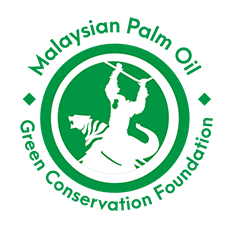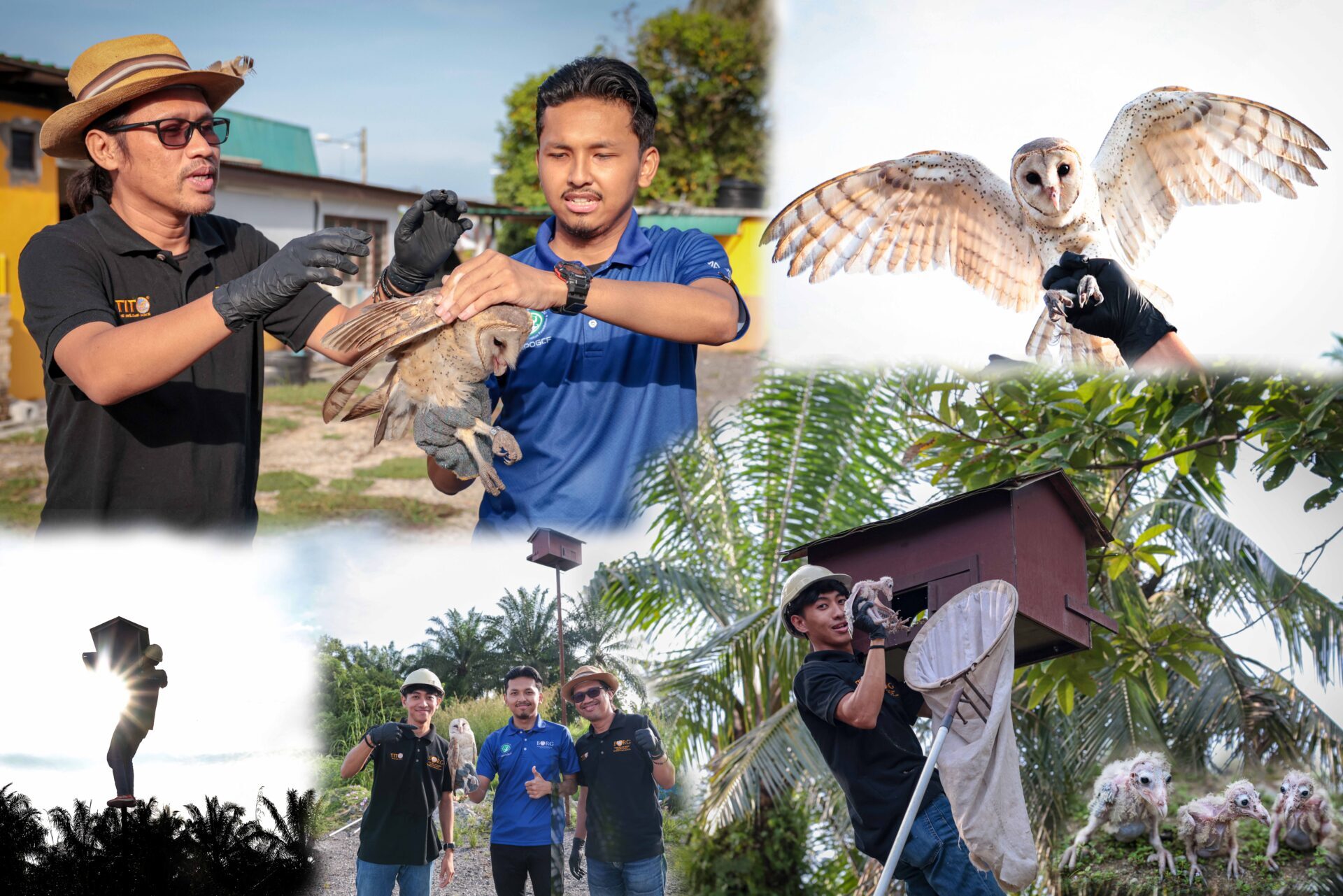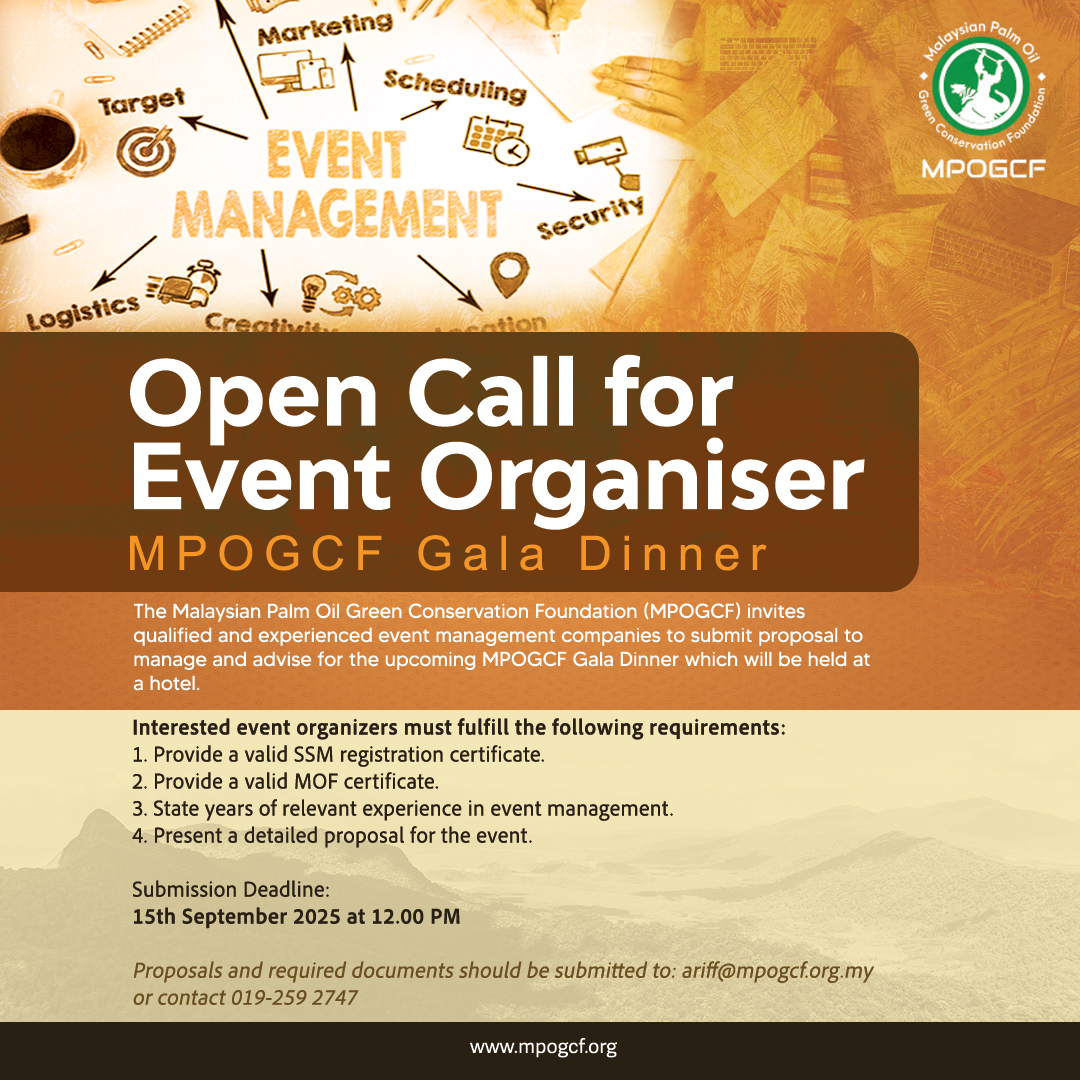MPOGCF EXPANDS BARN OWL INITIATIVE TO HELP SMALL-SCALE OIL PALM FARMERS
Petaling Jaya – A recent study on the use of barn owls (Tyto javanica) to control rat infestations in oil palm plantations has shown promising results, reducing crop damage from 20% to just 5% across 200 hectares of farmland. This success was achieved through natural biological pest control methods.
The Malaysian Palm Oil Green Conservation Foundation (MPOGCF), in collaboration with researchers from the Barn Owl and Rodent Research Group (BORG) at Universiti Sains Malaysia (USM), conducted this study to explore sustainable pest control methods for smallholder oil palm farmers.
Known as the Barn Owl Initiative for Smallholder Oil Palm Farmers (BOSI), the project aims to promote eco-friendly pest management while reducing reliance on chemical rodenticides, which can harm the environment.
Spanning nearly two years and concluding in December 2024, the study involved installing 20 artificial nesting boxes in smallholder oil palm plantations in Bandar Baharu and Serdang, Kedah, with a total investment of RM35,900 fully funded by MPOGCF. These nesting boxes were designed to encourage the presence, breeding, and settlement of barn owls in the area.
The findings revealed that the nesting boxes were frequently occupied, with an impressive 95% occupancy rate recorded in December 2023 and 2024. Additionally, pellet analysis (undigested food remains) confirmed that the owls primarily hunted plantation rats (Rattus tiomanicus) and rice-field rats (Rattus argentiventer), two major rodent species responsible for damaging oil palm crops. The study also noted a significant increase in the barn owl population, with a hatchling success rate of 88.23%, ensuring a stable and growing population within the plantations. According to MPOGCF General Manager, Hairulazim Mahmud, integrating biological pest control has proven to be a more sustainable and environmentally friendly approach, benefiting both the ecosystem and smallholder farmers.
“This initiative shows that natural biological control methods can be highly effective in oil palm plantations. Not only does it reduce reliance on chemical pesticides, but it also enhances biodiversity within Malaysia’s agricultural landscape,” he stated.
Following the success of this project, MPOGCF plans to expand the initiative nationwide, targeting more smallholder farmers to ensure the palm oil industry continues to embrace sustainable and responsible agricultural practices.
About MPOGCF
The Malaysian Palm Oil Green Conservation Foundation (MPOGCF) is an initiative spearheaded by the Ministry of Plantation and Commodities (MPC) aimed at supporting conservation efforts within the palm oil industry, demonstrating Malaysia’s dedication to environmental preservation.
Through various initiatives, MPOGCF endeavours to enhance the Malaysian palm oil industry’s global reputation, facilitating its attainment of sustainable practice certifications. MPOGCF diligently monitors key conservation areas within the palm oil sector, striving to safeguard and sustainably manage the nation’s natural heritage over the short, intermediate, and long term.
We are steadfast in communicating to the world that Malaysia’s palm oil industry operates with environmental responsibility at its core. Our funding initiatives stand as a testament to the industry’s unwavering commitment to environmental conservation and the promotion of a green landscape.
For more information on MPOGCF, please visit www.mpogcf.org.
Issued by MPOGCF’s Strategic Communication. For further inquiries, please contact MPOGCF’s Strategic Communication Manager, Tuan Nazuri Tuan Ismail ([email protected] / 012-3479144) or MPOGCF’s Senior Strategic Communication Executive, Mohd Ariff Ikram ([email protected] / 019-2592747)



